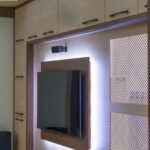A home decor business involves the sale and distribution of products and services related to interior design and home furnishing. This includes items such as furniture, textiles, decorative accessories, and other design elements that contribute to the aesthetic appeal of a living space. The significance of home decor businesses in creating visually appealing and functional homes cannot be overstated. The industry plays a crucial role in shaping the atmosphere and style of residential and commercial spaces alike.
Home decor not only adds personality to a space but also reflects the individual tastes and preferences of those inhabiting it. From traditional to modern, minimalist to eclectic, the world of home decor encompasses a wide range of styles, each catering to unique consumer needs. As such, understanding the dynamics of a home decor business is essential for entrepreneurs looking to enter this thriving market.
The continuously evolving nature of home decor trends has given rise to diverse opportunities within the industry. Additionally, advancements in technology have expanded avenues for marketing and selling home decor products. In this article, we will explore the various aspects of home decor businesses, from their historical roots to contemporary challenges and opportunities they present in today’s market.
History of Home Decor Business
The history of home decor business dates back to ancient civilizations, where people utilized various items to adorn their living spaces. From the use of tapestries and wall paintings in medieval castles to the introduction of intricate furniture during the Renaissance period, home decor has always played a significant role in defining the aesthetics of a home. The evolution of home decor trends and styles over the years reflects changes in society, culture, and design philosophies.
Some key milestones in the history of home decor include the Arts and Crafts movement in the late 19th century, which emphasized craftsmanship and simplicity in design. This period marked a shift away from mass-produced, ornate goods towards handcrafted, functional pieces that celebrated natural materials.
The mid-20th century brought about modernism and minimalism, with influential designers such as Charles and Ray Eames revolutionizing furniture design. These movements have had a lasting impact on contemporary home decor businesses, influencing everything from product design to retail practices.
In recent decades, globalization and technological advancements have further influenced the home decor industry. Access to a diverse range of cultural influences through travel, media, and ecommerce has led to a more eclectic approach to interior design.
Additionally, digital platforms have provided new avenues for showcasing and selling home decor products, leading to an expansion of the market’s reach. As we look towards the future, it’s clear that the history of home decor business continues to shape and inspire present-day trends and practices.
- Arts and Crafts Movement
- Modernism and Minimalism
- Globalization and Technology
- Emphasis on craftsmanship
- Eclectic approach to design
- Digital platforms for selling products
Types of Home Decor Businesses
The home decor industry is a diverse and thriving sector that encompasses various types of businesses, each with its own unique offerings and target audience. From retail stores and e-commerce platforms to interior design firms, the world of home decor entrepreneurship is rich with opportunities for creative professionals and business-minded individuals alike.
Retail stores specializing in home decor are a common sight in shopping districts and malls, offering a wide range of products such as furniture, lighting fixtures, wall art, textiles, and decorative accessories. These physical establishments provide customers with the opportunity to experience the products firsthand, allowing for a tactile shopping experience that can be influential in the purchasing decision.
On the other hand, e-commerce home decor businesses have gained significant traction in recent years, capitalizing on the convenience and accessibility of online shopping. With virtual storefronts and digital marketing strategies, these businesses reach a global audience and cater to consumers who prefer the ease of browsing and purchasing home decor items from the comfort of their own homes.
Interior design firms with a focus on home decor provide professional expertise in creating cohesive and visually appealing living spaces. These businesses offer comprehensive design services that may encompass everything from conceptualization and planning to procurement and installation. Catering to clients with varying tastes and preferences, interior design firms play a crucial role in shaping the aesthetic appeal of residential properties.
| Type of Home Decor Business | Description |
|---|---|
| Retail Stores | Physical establishments offering a wide range of home decor products for customers to explore |
| E-commerce Businesses | Virtual storefronts specializing in selling home decor items through online platforms |
| Interior Design Firms | Professional services focused on creating cohesive and visually appealing living spaces through strategic design concepts |
Key Players in the Home Decor Business
Some of the most well-known names in the home decor business include Pottery Barn, West Elm, and Anthropologie. These companies offer a wide range of home decor products, including furniture, textiles, and decorative items. They are known for their high-quality products and unique designs that cater to various tastes and styles. Additionally, there are also smaller boutique brands that have gained recognition for their artisanal and handcrafted home decor pieces.
Influential Figures and Designers Within the Home Decor Business
The home decor industry is also shaped by influential figures and designers who contribute to the creation of innovative and trendsetting products. Designers such as Kelly Wearstler, Joanna Gaines, and Nate Berkus have made significant impacts on the industry with their distinct styles and design philosophies. Their work not only influences consumer preferences but also serves as inspiration for emerging entrepreneurs in the home decor business.
The influence of key players in the home decor business extends beyond just product offerings. They often set trends in design that permeate throughout the industry. Whether it’s introducing a new color palette for a season or promoting a specific design aesthetic, these key players have a significant impact on shaping consumer preferences and overall industry trends.
Overall, key players in the home decor business play an essential role in driving innovation, setting trends, and shaping consumer preferences within the industry. Their influence extends to both product development and design aesthetics, making them crucial components of the ever-evolving world of home decor entrepreneurship.
The Process of Starting a Home Decor Business
Steps to Launching a Successful Home Decor Business
Starting a home decor business requires careful planning and meticulous execution. The first step is to conduct thorough market research to understand the demand for different types of home decor products and styles.
This involves analyzing consumer preferences, identifying local competitors, and pinpointing gaps in the market that your business can fill. Once you have a clear understanding of the market, it’s important to create a comprehensive business plan that outlines your target audience, sales strategy, marketing approach, and financial projections.
After developing a solid business plan, the next step is to establish a strong brand identity for your home decor business. This includes choosing a memorable and unique name for your company, designing an eye-catching logo, and creating a cohesive visual aesthetic that aligns with your brand’s values and target market. Building a strong brand identity will help differentiate your home decor business from competitors and attract loyal customers.
Necessary Skills and Qualities for Entrepreneurs in the Home Decor Business
Entrepreneurs looking to enter the home decor industry should possess a combination of creative flair, business acumen, and a deep understanding of design principles. A keen eye for aesthetics is essential when curating products for your home decor business, as you’ll need to stay updated on emerging trends and timeless styles. Additionally, having strong communication skills will be crucial when working with suppliers, negotiating contracts, and building relationships with clients.
In addition to creative skills, entrepreneurs in the home decor business should also have a solid grasp of finance and budgeting. Understanding profit margins, pricing strategies, and inventory management will be key to running a successful home decor business. Finally, perseverance and adaptability are essential qualities for navigating the challenges of entrepreneurship in this industry. The ability to pivot in response to changing consumer preferences and market conditions will be crucial for long-term success in the home decor business.
Finding Suppliers and Establishing Vendor Relationships
Once you’ve defined your brand identity and honed in on your product offerings, the next step is finding reliable suppliers for your home decor business. Whether you’re sourcing handmade textiles from local artisans or importing furniture from overseas manufacturers, establishing strong vendor relationships is vital for maintaining quality control and consistent inventory levels.
Networking at trade shows, reaching out to industry contacts, and leveraging online platforms can help you connect with reputable suppliers who align with your brand’s aesthetic and values. Building strong vendor relationships built on trust and transparency will enable you to deliver high-quality products that resonate with customers’ lifestyles.
Challenges and Opportunities in the Home Decor Business
The home decor business, while lucrative, is not without its challenges. One of the main obstacles faced by entrepreneurs in this field is the ever-changing trends and consumer preferences. Staying updated with the latest styles and designs is crucial to remain competitive in the market. Additionally, sourcing unique and high-quality products can be a challenge, especially for smaller businesses looking to differentiate themselves from larger retailers.
On the other hand, the home decor business presents numerous opportunities for growth and innovation. With the increasing emphasis on sustainability and eco-friendly products, there is a growing demand for environmentally conscious home decor items. Entrepreneurs who can tap into this niche market have the potential to carve out a successful and socially responsible business model. Furthermore, technological advancements have made e-commerce platforms more accessible, allowing home decor businesses to reach a wider audience beyond their local markets.
| Challenge | Potential Solution |
|---|---|
| Staying updated with latest trends and designs | Regular market research and networking with suppliers |
| Finding unique and high-quality products | Establishing partnerships with artisans and independent designers |
Overall, navigating through these challenges while capitalizing on emerging opportunities requires a blend of creativity, adaptability, and strategic planning in what is a home decor business. The key is to maintain a keen understanding of consumer behavior while being innovative with product offerings and marketing strategies. With diligence and perseverance, aspiring entrepreneurs can build successful ventures in the dynamic world of home decor entrepreneurship.
Marketing and Branding in the Home Decor Business
In the competitive world of home decor business, marketing and branding play a crucial role in establishing a successful venture. Marketing involves the promotion and selling of home decor products to potential customers, while branding is about creating a distinct identity and image for a business within the market. With the rise of social media and e-commerce, the strategies for marketing and branding in the home decor industry have evolved significantly.
One common marketing strategy for home decor businesses is to showcase their products through visually appealing platforms such as Instagram, Pinterest, and Facebook. These social media platforms allow businesses to engage with their audience by sharing beautifully curated images of their products, inspiring home décor ideas, and engaging with followers through interactive content. Additionally, collaborations with influencers or interior design professionals can help to create brand awareness and reach a wider audience.
When it comes to branding, it’s essential for home decor businesses to have a clear brand identity that resonates with their target market. This includes developing a unique aesthetic that sets them apart from competitors, as well as communicating their brand values effectively. Whether a business focuses on sustainable and eco-friendly products or luxury and high-end designs, it’s important for the brand identity to align with the preferences of its ideal customer.
Furthermore, e-commerce has revolutionized the way home decor businesses approach marketing and branding. Online retailers can leverage data analysis and digital advertising techniques to target specific demographics and personalize their marketing efforts. This allows for more efficient use of resources and better understanding of consumer behavior, ultimately leading to higher conversion rates and sales.
Overall ,marketing teams in what is a home mother dauther party business are continually adapting to new trends, finding innovative ways to connect with consumers,and staying ahead in an ever-changing market landscape. By cultivating distinctive brand identities and implementing effective marketing strategies, home decor businesses can successfully position themselves as leaders in this growing industry.
The Future of Home Decor Business
As the home decor industry continues to evolve, there are several emerging trends and innovations that are shaping the future of this business. The digital age has shifted consumer behavior, leading to changes in how home decor products are marketed and sold. Additionally, advancements in technology are also impacting the design and production process of home decor items.
Here are some key insights into the future of the home decor business:
- Sustainable practices: With increasing awareness about environmental issues, there is a growing demand for sustainable and eco-friendly home decor products. This includes using organic materials, upcycling, and reducing waste in production processes. Home decor businesses will need to adapt to this shift by incorporating sustainable practices into their operations.
- Personalization and customization: Consumers today seek unique and personalized experiences, even in their home decor choices. This trend is leading to an increase in custom-made and bespoke home decor items. As a result, businesses will need to offer more options for customization to meet the demands of their customers.
- Virtual reality (VR) and augmented reality (AR): The use of VR and AR technology is revolutionizing the way consumers experience home decor. These technologies allow customers to visualize how a particular piece of furniture or accessory will look in their space before making a purchase. Home decor businesses will need to integrate these technologies into their sales strategies to provide an immersive shopping experience for their customers.
The future of the home decor business is undoubtedly exciting, as it presents new opportunities for innovation and creativity. By staying abreast of these trends and embracing technological advancements, entrepreneurs in this field can position themselves for success in a rapidly changing market landscape.
Conclusion
In conclusion, it is evident that a home decor business plays a crucial role in shaping the aesthetics and functionality of living spaces. From retail stores to e-commerce businesses and interior design firms, the industry offers a multitude of opportunities for entrepreneurs to showcase their creativity and passion for design. Home decor businesses not only cater to the individual preferences of homeowners but also contribute to larger trends in interior design and style.
The future of the home decor business holds promise, with advancements in technology and a growing emphasis on sustainable and eco-friendly products. This presents exciting opportunities for innovation and growth within the industry. As consumer demand continues to evolve, there is potential for home decor businesses to adapt and thrive in a rapidly changing market landscape.
Overall, the impact and significance of home decor businesses cannot be understated. They are essential in curating unique and personalized living spaces, while also influencing broader design trends. Whether you are a budding entrepreneur or simply an enthusiast of interior design, exploring the world of home decor business can be a fulfilling journey filled with creativity, innovation, and endless possibilities.
Frequently Asked Questions
Is Home Decor a Good Business?
Home decor can be a good business if you have a passion for design and a keen eye for trends. It can be competitive, but there is a growing demand for unique and stylish home decor products.
What Do I Need to Start a Home Decor Business?
To start a home decor business, you will need to have a clear business plan, knowledge of interior design trends, and sourcing abilities. You may also need to consider e-commerce platforms, marketing strategies, and solid financial backing.
What Does Home Decor Do?
Home decor encompasses the art of beautifying living spaces through the use of furniture, color schemes, accessories, and various decorative elements. It aims to create comfortable, functional, and aesthetically pleasing environments for individuals or families to enjoy.

I’m thrilled to be your companion on this exciting journey through the world of home decor and design. With a passion for turning houses into homes and a keen eye for the finer details, I’m here to help you transform your living spaces into beautiful, functional, and meaningful havens.





